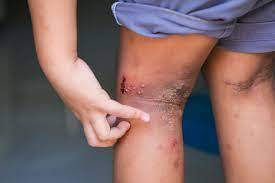How to Prevent Eczema and Manage Its Symptoms
Introduction:
Eczema, also known as atopic dermatitis, is a common skin condition characterized by red, itchy, and inflamed skin. It affects people of all ages, from infants to adults, and can significantly impact their quality of life. While there's currently no cure for eczema, there are many strategies individuals can adopt to prevent flare-ups and manage its symptoms effectively. In this comprehensive guide, we'll explore various preventive measures and lifestyle changes that can help minimize eczema outbreaks and promote healthier skin.
Understanding Eczema:
Before delving into prevention strategies, it's essential to understand the underlying causes and triggers of eczema. While the exact cause remains unknown, eczema is believed to result from a combination of genetic, environmental, and immune system factors. People with eczema often have a compromised skin barrier, which allows irritants and allergens to penetrate the skin more easily, leading to inflammation and itching.
Common Triggers:
Identifying and avoiding triggers is key to preventing eczema flare-ups. Some common triggers include:
1. Allergens: Pollen, pet dander, dust mites, and certain foods can trigger allergic reactions in individuals with eczema.
2. Irritants: Harsh soaps, detergents, fabrics, and skincare products containing fragrances or alcohol can irritate sensitive skin and worsen eczema symptoms.
3. Climate and Weather: Extreme temperatures, low humidity levels, and dry air can exacerbate eczema flare-ups.
4. Stress: Emotional stress and anxiety can weaken the immune system and trigger eczema outbreaks.
5. Hormonal Changes: Hormonal fluctuations, particularly during puberty, pregnancy, or menopause, can influence eczema symptoms.
Preventive Measures:
1. Moisturize Regularly: Keeping the skin well-hydrated is crucial for eczema prevention. Choose fragrance-free moisturizers and apply them immediately after bathing to lock in moisture.
2. Use Gentle Skincare Products: Opt for mild, hypoallergenic cleansers, and avoid products containing harsh chemicals or fragrances that can irritate the skin.
3. Avoid Triggers: Identify and avoid potential triggers such as certain foods, environmental allergens, and irritating substances.
4. Practice Good Bathing Habits: Take short, lukewarm baths or showers using mild, fragrance-free cleansers. Pat the skin dry gently with a soft towel.
5. Wear Soft Fabrics: Choose breathable, natural fabrics like cotton and avoid rough or scratchy materials that can irritate sensitive skin.
6. Maintain a Healthy Diet: Incorporate foods rich in omega-3 fatty acids, antioxidants, and probiotics, which can help support skin health and reduce inflammation.
7. Manage Stress: Practice stress-reducing techniques such as meditation, yoga, deep breathing exercises, or mindfulness to help manage eczema symptoms.
8. Keep Nails Short: Trim your nails regularly to prevent scratching and minimize the risk of skin damage and infection.
9. Create a Skin-Friendly Environment: Use a humidifier to add moisture to the air, particularly during dry weather or in heated indoor spaces.
10. Seek Medical Advice: Consult a dermatologist for personalized treatment recommendations and guidance on managing eczema symptoms effectively.
Conclusion:
While eczema can be a challenging condition to manage, adopting preventive measures and making lifestyle changes can significantly reduce the frequency and severity of flare-ups. By identifying and avoiding triggers, practicing good skincare habits, and prioritizing overall health and well-being, individuals with eczema can enjoy healthier, more comfortable skin. Remember that consistency and patience are key, and don't hesitate to seek professional medical advice if you need additional support in managing your eczema symptoms. With the right approach, you can take control of your eczema and lead a fulfilling life free from constant skin irritation and discomfort.




No comments yet
Be the first to share your thoughts!